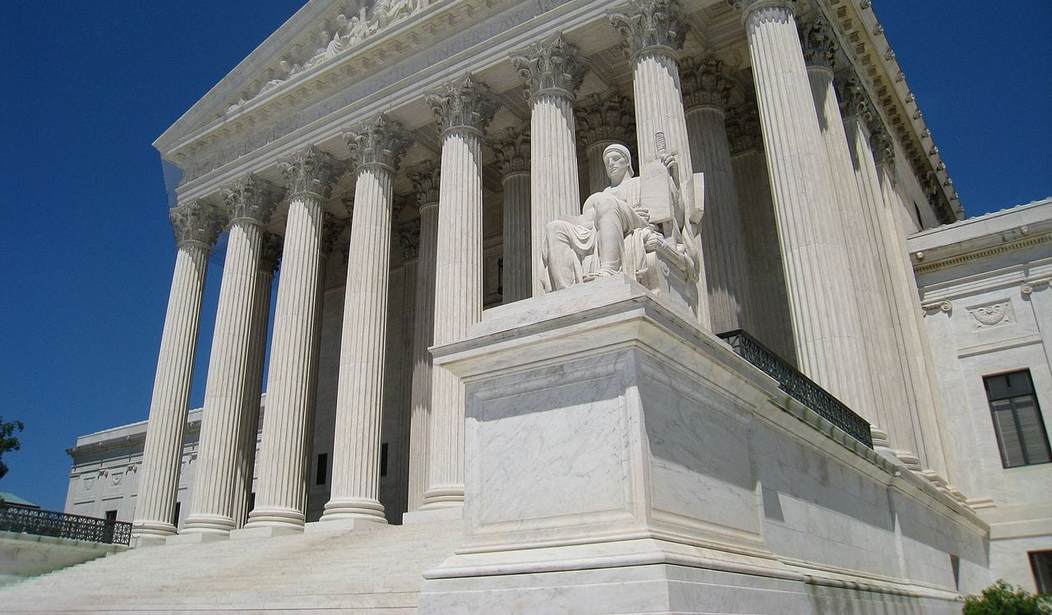On Thursday, the U.S. Supreme Court unanimously struck down an activist ruling from the 9th Circuit Court of Appeals, condemning it as “beyond the pale.” The 9th Circuit had twisted the case United States v. Sineneng-Smith in order to strike down as unconstitutional a federal law prohibiting Americans from inducing an illegal alien to enter or reside in the United States. The notorious liberal Justice Ruth Bader Ginsburg wrote the Court’s opinion, illustrating just how unanimous the ruling was.
“The Ninth Circuit’s radical transformation of this case goes well beyond the pale,” Ginsburg wrote. Indeed, she cited previous Court rulings condemning the abuses of activist judges who use the judiciary to strike down laws by raising issues that are not pertinent to the case at hand.
“In short: ‘[C]ourts are essentially passive instruments of government,'” Ginsburg wrote, quoting an opinion from United States v. Samues (1987). “They ‘do not, or should not, sally forth each day looking for wrongs to right. [They] wait for cases to come to [them], and when [cases arise, courts] normally decide only questions presented by the parties.'”
The case involves Evelyn Sineneng-Smith, who operated an immigration consulting firm in San Jose, Calif. Sineneng-Smith extended false promises to immigrants who did not have legal authorization to work in the U.S. She told these illegal immigrants that she would file applications for a labor certification program that had once provided a path for immigrants to adjust to lawful permanent resident status, but she knew that her clients could not meet the long-passed statutory application-filing deadline.
Sineneng-Smith charged her clients over $6,000, netting more than $3.3 million. She was indicted for multiple violations under the federal law barring citizens from encouraging or inducing aliens “to come to, enter, or reside in the United States, knowing or in reckless disregard of the fact that such coming to, entry, or residence is or will be in violation of law.” Federal law also imposes an enhanced penalty if the crime is “done for the purpose of commercial advantage or private financial gain.” She was convicted on these counts, in addition to counts of filing false tax returns and mail fraud. She did not contest the tax crimes or the mail fraud.
In the District Court, she argued that the laws did not apply to her conduct, and claimed that if they did, they would violate the Petition and Free Speech Clauses of the First Amendment. The District Court rejected her arguments.
Yet Sineneng-Smith appealed to the 9th Circuit Court of Appeals, which not only granted the appeal but also fundamentally transformed the case. The 9th Circuit panel of judges named three amici curiae and invited them to brief and argue issues framed by the panel, including a question never raised by Sineneng-Smith: whether the federal statute was overbroad under the First Amendment. The 9th Circuit then proceeded to strike down the federal law.
The Supreme Court rightly rejected this activist attack on a just federal statute.
“We applaud the Court’s well-reasoned decision,” Dale L. Wilcox, executive director and general counsel at the Immigration and Reform Law Institute, said in a statement. “Unfortunately, the Court did not have to reach the issue of whether this important statute is constitutional, but it did keep the law in place. When and if the overbreadth issue is brought up properly by a defendant in the future, we will be there.”
The Court was unanimous in striking down the 9th Circuit’s decision, but Justice Clarence Thomas filed a concurring opinion suggesting that the Court revise its “overbreadth doctrine.”
“The overbreadth doctrine appears to be the handiwork of judges, based on the misguided ‘notion that some constitutional rights demand preferential treatment.’ It seemingly lacks any basis in the text or history of the First Amendment, relaxes the traditional standard for facial challenges, and violates Article III principles regarding judicial power and standing,” he wrote.
U.S. v. Sineneng-Smith (2020) serves as an important rebuke to judicial activism, but Thomas may be correct that it does not go far enough. At the very least, the Supreme Court rightly defended a federal law that rightly bans Americans from inducing illegal immigrants to enter this country after the 9th Circuit wrongfully struck it down.
Tyler O’Neil is the author of Making Hate Pay: The Corruption of the Southern Poverty Law Center. Follow him on Twitter at @Tyler2ONeil.









Join the conversation as a VIP Member